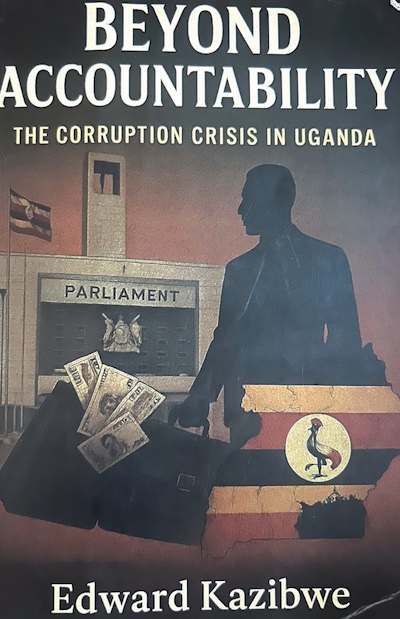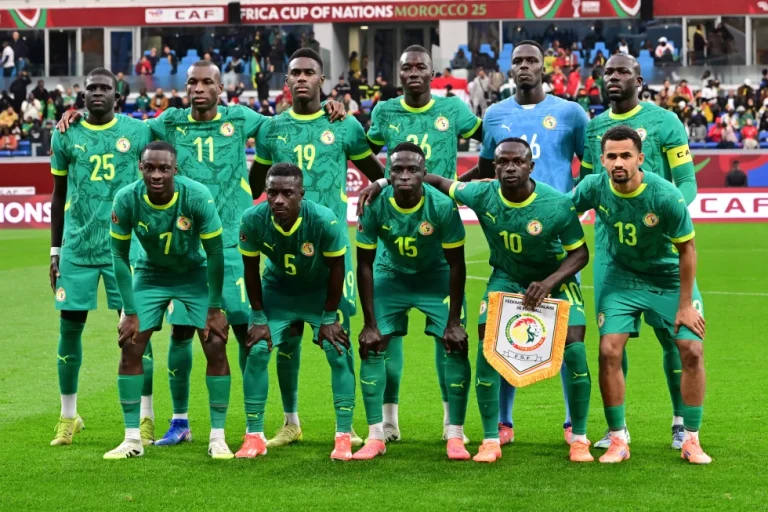
Screenshot

How far can your memory stretch when it comes to naming some of the most prominent corruption-related cases in Uganda?
Chances are high that many would limit their lists to the nearly 40 years of the National Resistance Movement rule. Edward Kazibwe avoids this limitation. In his upcoming book, Beyond Accountability: The Corruption Crisis in Uganda, Kazibwe takes us as far back as the 1960s, profiling cases that had long left the public psyche, and offers us interesting bits and pieces of cases where taxpayers’ money was squandered.
It is a book that is a strong depiction of how a win against corruption remains elusive, and why there is a need for a solution for this common enemy. Writing in simple and clear prose, Kazibwe focusses his narrative on the facts such as court records, and mainly draws his information from official documents.
A touchy subject, where the facts can be blurred, Kazibwe is careful to distance himself from being subjective, but remains steadfast in nailing down the nitty-gritty of the cases.
The book is an interesting journey down memory lane, reminding us of the villains who could not resist dipping their fingers into the national kitty for personal gain.
It is also an educative book and a strong recollection of Uganda’s troubled history when it comes to dealing with basic character traits such as honesty and discipline, and the long way we have to go.
While Kazibwe might not have exhausted the list of all the corruption scandals that have rocked this country – one would need at least five books the size of the bible to pull that off – he has done a good job of pointing us to the main cases, the kind that remind us of the work we all have to do.
WHO IS EDWARD KAZIBWE?
Born in April 1988 at Mulago hospital, Kampala, Kazibwe’s trajectory has been anything but conventional. A product of resilience and reinvention, his early life paints the portrait of a determined young man with a mind far beyond his years.
Kazibwe’s educational journey began at Aunt Milly nursery school in Mulago, subsequently progressing to various other educational institutions. In 2001, he sat for his Primary Leaving Examinations at Bweyogerere Central primary school.
Financial instability following the collapse of the family business cast a shadow over the future, threatening his chances of completing school. Yet, where others saw roadblocks, he saw strategy.
In a highly unorthodox move, “I devised a plan to skip Senior Three altogether, quietly studying ahead using borrowed textbooks from a friend. I was enrolled in a rural, understaffed school in Bulo, Butambala district where, remarkably, I was the only boarding student in Senior Four.”
What he remembers, interestingly within weeks of joining, was when he was appointed head boy – an unusual honour, especially for someone newly admitted and in the final year. “Passing from that school was nearly impossible,” he reflects.
“I was self- teaching in almost five subjects.” His efforts paid off when he transferred to Ntanda College School, completing his UCE successfully, before sitting for his UACE in 2005 at Kakungulu Memorial School in Kibuli, where he emerged as the second-best student in his cohort.
He would go on to earn a Bachelor of Arts in Economics at Makerere University in 2012, followed by a master’s degree in Economic Policy and Planning in 2015. Kazibwe is also a member of the Chartered Governance Institute of the UK and Ireland, which reflects the depth of his professional training and experience in corporate governance and regulatory frameworks.
WORK EXPERIENCE
His work life mirrors the same versatility and ambition. Following graduation, Kazibwe took on a part-time role as a research officer in the ministry of Finance’s Budget Monitoring and Accountability Unit.
In 2016, he moved to Jersey in the Channel Islands, United Kingdom, joining the private sector. There, he worked with Garfield Bennett Trust Company Limited and later Suntera Global, developing expertise in the administration of trusts, corporate entities, and onshore/offshore financial structures.
In 2022, Kazibwe joined BNP Paribas S.A, Jersey Branch as a fund company secretary, managing corporate services for listed entities. In August 2025, he resigned from his job to pursue an LLB in Law with Politics at Cardiff University.
“It was not an easy decision to leave such a secure and respected position,” he acknowledges. “But I believe knowledge is key, and law is the tool that shapes the future of any nation.”
He is now enrolled in an LLB Law with Politics programme at Cardiff University, aiming to combine legal understanding with political acumen.
KAZIBWE ON POLITICS
Politics, however, is not new to him. Kazibwe traces his political awakening to the 1996 general elections, where he attended rallies in Kawempe supporting presidential candidate Dr Paul Kawanga Ssemogerere.
“Even as a kid, I believed he would win,” he recalls. Living close to Kawempe Mbogo mosque, he also grew familiar with Kibirige Mayanja’s rallies and the broader political currents of the time.
By 2001, his political activism had intensified. A tragic incident during a rally in Bweyogerere, where a speeding car struck and killed some of his colleagues, remains etched in his memory.
Despite setbacks, he remained politically engaged, participating actively in the 2006 elections and monitoring polling stations in Namasuba. But the disillusionment with Uganda’s flawed electoral system was deep and lasting.
“I realised elections were deeply compromised, full of rigging and malpractice,” Kazibwe says. “But we still have a social obligation to demand better.”
His recent political re-entry is, therefore, not a departure from his past but a continuation of a lifelong concern for Uganda’s democratic future. He is a member of a pressure group, Reform Uganda, which is advocating for institutional reforms, leadership transition, civic education and accountable governance.
“My political engagement is not partisan,” he notes. “It is values-based. We must build institutions that are bigger than personalities.”
Kazibwe’s unique combination of global finance experience, policy expertise, and lived experience in both Uganda and the diaspora makes him a rare political prospect. With growing public interest in young, principled, and professional leadership, he may well represent a new face of Ugandan politics, one that is focused not on populism, but principles.
“My goal is to help reconstruct the idea of leadership itself where public service means putting the people first, not personal gain.”
Edward Kazibwe may have left the boardrooms of European finance, but in stepping onto Uganda’s political stage, he has perhaps embarked on his most consequential career yet.



